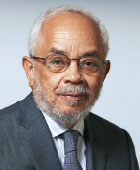Reply to Larry Davidson on Recovery

The Yale professor Larry Davidson published a thoughtful commentary in the December 2018 World Association for Psychosocial Rehabilitation Bulletin with the interrogative title: “Is There a Future for Recovery?” Curiosity got the better of me for two reasons: First, he and his colleagues at the Yale School of Medicine are among the major theorists in the country discussing the recovery movement in mental health. Second, he and his senior collaborator, Professor Michael Rowe, have long been responsible for tutoring me on the subject of recovery.
Davidson noted that Patricia Deegan’s seminal article (“Recovery: The Lived Experience of Rehabilitation”) about the concept of recovery appeared in 1988 and described recovery as “the lived experience of people as they accept and overcome the challenge of the disability.” Recovery also provides “a new sense of self and of purpose within and beyond the limits of the disability.”
Davidson remarked that the conceptualization of recovery coincided with the eventual inclusion of psychiatric disability in the 1990 Americans With Disabilities Act. He was originally pleased with this linkage of serious mental illnesses to what he called a disability-rights framework. He agreed this approach brought change in mental health policy and practice and in the expectations of those suffering from mental illness. However, he worried that the disability framework may be on the wane.
Davidson mentioned concrete achievements, though, such as increased emphasis on community care; supports for care centered on housing, employment, and education; and development of self-help tools. So why had he become worried? He explained that his first concern was linked to the de-emphasis of the disability in the definition of recovery. In other words, recovery is now seen by some as a unique or deeply personal journey. Thus, caregivers de-emphasized acute medical care; hospitals were considered less prominent and even useless.
Davidson’s second major concern was what he described as “neglect of the social and cultural determinants of mental health.” Some of us have long noted this problem, simply because some patients were being discharged from hospitals with little regard for their poverty, social status, and even their complex medical status apart from their mental illness. This occurred in the face of clinical understanding that serious mental illness and significant physical illness compounded by structural factors like poverty or racism can be devastating for anyone.
I understand Davidson’s worrying, especially as he is a good friend and colleague. He has also worked hard on behalf of severely ill patients. From time to time, I have been disappointed by those who have distorted the principles that he and his colleagues set up to guide the implementation of recovery theory. For example, there was a time when U.S. Department of Justice representatives visited hospitals around the country, preaching recovery for all and ignoring the “heterogeneity in outcomes” produced by the mental illness disability. They also seemed unaware that state hospitals were providing care for seriously ill patients, those for whom “clinical recovery” was often most difficult. None of this was Davidson’s fault, of course.
Davidson’s article ended on an important point, as he looked to the future. He focused on the group of individuals with “prolonged disabilities … who do not recover in the conventional, clinical sense of the term.” These individuals have a hard time living with their illnesses, struggle mightily with their psychosocial disabilities, and confront varying forms of isolation and exclusion from their communities. Davidson wants them “let in” as they are (that is, disabled) to the general community around them without having to “fit in” by hiding their disabilities. Davidson made clear this is a major challenge for the future, and he is, of course, right. Clinical recovery for this group is not a casual challenge. It demands concentrated attention, creativity, futuristic imagination, and a commitment to humanity from a collective of clinicians, politicians, policy leaders, and academics. We should develop a new approach to their care and to preserving their dignity.



